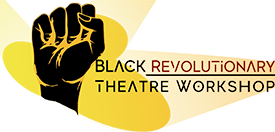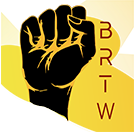Revolutionary Theatre: A Heritage
“Show up the insides of these humans.” -Amiri Baraka, The Revolutionary Theatre
In 1967, Amiri Baraka launched the first production of Slave Ship in Newark, NJ. He used smells, lighting, and audience participation (which some described as coercive at best) to create an environment that matched its namesake. His controversial essay, “Revolutionary Theatre,” was published two years before. Yet, as Slave Ship disappeared from the stage and became more of a footnote in Africana arts classes, it began to typify his call to action. Baraka infamously called for theatre to “force change,” “be change,” and “expose.” For the lucky (and some unlucky) few who saw Slave Ship live, this would be one of the most seminal instances of Revolutionary Theatre in the performing arts lexicon.
Although this piece was commissioned by The New York Times, he struggled to get it published. Perhaps, this was because Baraka infused this philosophy of art with an anti-establishment violence. He didn’t shy away from its implicit warrior-call. I wonder if this frank discussion of alienating white audiences and the predominantly white experimental arts scene would be more palatable today.
“It is a political theatre, a weapon to help in the slaughter of these dimwitted fat-bellied white guys who somehow believe that the rest of the world is here for them to slobber on.” -Amiri Baraka, The Revolutionary Theatre
I don’t think so.
Unapologetically Black: Movement-as-Aesthetic
We’re often asked to define ourselves, our process, our art. Then we do. We explain that we stand on the shoulder of giants. Our giants are imperfect and complicated- Baraka’s antisemitism and homophobia was well-documented – but we position our work in a continuum in which they play essential parts.
BRTW exists to continue the work of the Revolutionary Theatre. It questions social consciousness and fights for liberation. It continues to push the boundaries with evolving modern consciousness and demands an intersectional lens of Blackness. It uses the stage as a central place in the theatre of culture-war, and it takes sides. There have been similar movements-as-aethetic: Brechtian, Artaudian, even Jacobian theatre touches on aspects of the political and violent nature of our work. Devised theatre- as expansive and nebulous a term as it can be- encompasses some of the aspects of our pre-rehearsal process. Nonetheless, we are none of these, even as we share commonalities with them.
Black Revolutionary Theatre Workshop is, necessarily, aggressively and unapologetically Black.
Don’t Whitesplain the Revolution, #KThanksBye
There will be push-back anytime someone shouts their Blackness. It doesn’t matter whether we’re proclaiming Black Lives Matter, Black Girl Magic, Black Boy Joy, or Black Is Beautiful. Someone will take issue with unapologetic Blackness, Black love, Black self-care, or Black liberation. Some are just aggressively racist assholes. Others just feel like there’s something problematic about it. The latter is easy to identify. They respond, “Well, don’t all lives matter?”
They ignore how “all” conjures an image of whiteness in much of the western world. They forget that invalidating Black agency is a habit in a racist continuum.
“The Revolutionary Theatre is shaped by the world, and moves to reshape the world,”- Amiri Baraka, The Revolutionary Theatre
Unrelenting whiteness dominates the arts, especially live performance. The aesthetic, the audience, and the education is white. For all of the Black contributions to art and entertainment, the industry is full of artists and “change makers” tripping over themselves to simultaneously emulate and erase us. They shout, “Ain’t nobody got time for that!” and “Bye Felicia!” to assure their peers that they stay current. They define trendiness with Black cultural competency while insisting that our presence, consent, and representation are neither needed nor wanted.
“Most white Western artists do not need to be “political,” since usually, whether they know it or not, they are in complete sympathy with the most repressive social forces in the world today.”
We push back against this. Part of BRTW’s mission is to examine the systems and people who, by omission, implicitly tell us that Blackness is unimportant. It’s central to our work, our aesthetic, and our artistic heritage. And we explicitly acknowledge that artistic heritage even as pseudo-progressive artists insist that it does not exist or matter.
You can read Baraka’s full essay, “The Revolutionary Theatre” here.



